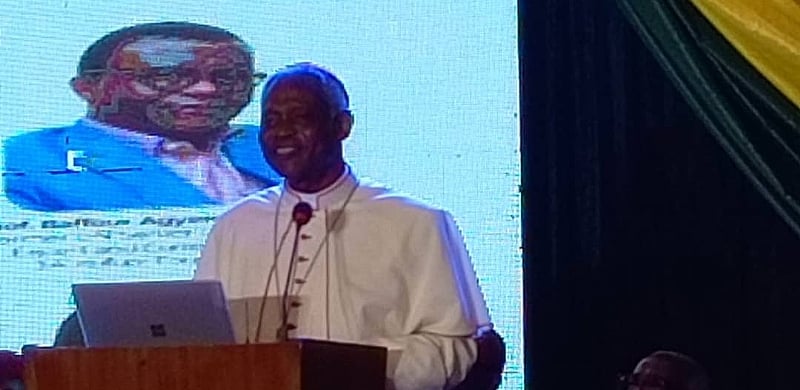In anticipation of the upcoming December elections, a high-level forum in Accra focused on the critical need for presidential candidates to exhibit leadership by promoting peace among their supporters. The event, organized by the Institute for Democratic Governance and the Civil Forum Institute, revolved around the theme “Advancing Peace, Unity, and National Cohesion in Ghana.” Cardinal Peter Kodwo Appiah Turkson, who serves as the Chancellor of the Pontifical Academies of Sciences and Social Sciences in the Vatican, played a pivotal role in urging candidates to articulate their commitment to creating a peaceful electoral atmosphere for all involved. He emphasized that it is crucial for leaders to set a tone of tranquility that permeates the electoral process, reassuring the electorate that their intentions are aligned with the greater good of the nation.
Cardinal Turkson specifically highlighted the importance of those candidates who had visited Pope Francis, including John Dramani Mahama of the National Democratic Congress, Dr. Mohamadu Bawumia from the New Patriotic Party, and incumbent President Akufo-Addo. He encouraged these leaders to utilize their interactions with the Pope to reinforce their dedication to peace and unity. He underscored that it is crucial for political actors to remind their supporters that the power ultimately lies with the electorate, promoting the notion that voters, not political parties, determine the government. By urging political parties to invest in voter education, he hoped to foster a sense of civic responsibility that transcends partisan lines.
Turkson’s call for peace extended to all citizens, imploring the public to decisively reject violence in favor of collaborative efforts to ensure a peaceful electoral outcome. He poignantly remarked that while violence may be an abstract notion, human behavior and character are what bring it into reality. By promoting peaceful conduct, candidates and their supporters can create a more conducive environment for democracy to flourish. This emphasis on personal accountability sets the stage for a more respectful political discourse, one that values disagreement without descending into personal attacks or violent rhetoric.
Central to Turkson’s message was the need for a cohesive national vision capable of steering Ghana towards sustainable development. He argued that every societal institution ought to prioritize humanity, positioning itself as human-centered rather than serving as an instrument of oppression. This consideration of what constitutes a healthy democratic framework includes not only supporting individual rights to vote but also ensuring that that vote is an expression of genuine choice devoid of external pressures. Leaders have a pivotal role in modeling a positive political culture, upholding principles of dignity and respect, which in turn nurtures public trust in the electoral process.
Turkson also addressed pressing issues beyond political peace, notably environmental degradation, calling for concerted national dialogue and action to combat these challenges. His broader vision for the nation included a potential review of the existing constitutional framework, especially regarding the appointments of the Electoral Commission and judges, highlighting the necessity of independent institutions that are both bold and impartial. This approach aligns with the overarching goal of enhancing democratic integrity and ensuring fairness throughout the electoral process.
Supporting Turkson’s perspective, Professor Baffour Agyeman-Duah, a former senior governance expert at the United Nations, underscored the necessity for African nations to adapt democratic practices in a way that resonates with their unique circumstances. He suggested a thoughtful re-evaluation of the prevailing winner-takes-all electoral system, advocating changes that could mitigate the cycles of corruption and violence associated with competitive political landscapes. This dialogue is integral for evolving democratic norms in Ghana and similar societies, paving the way for a more inclusive and transparent political framework that encourages collaboration and reduces animosity among diverse groups during elections. Together, these calls to action provide a roadmap for advancing peace, unity, and national cohesion in Ghana as the nation moves forward into its electoral season.














